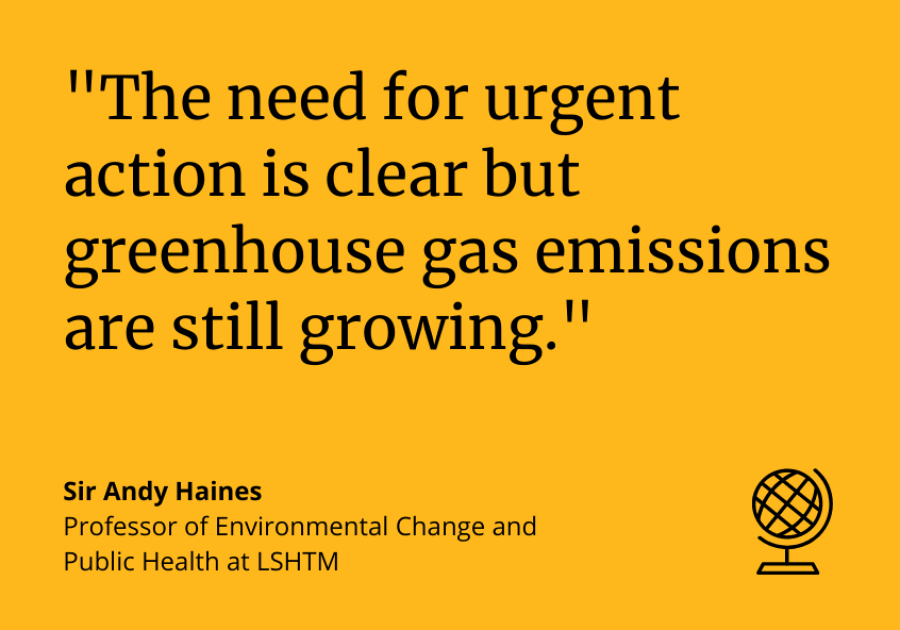Expert comment - ‘Now or never’ to avert climate disaster
5 April 2022 London School of Hygiene & Tropical Medicine London School of Hygiene & Tropical Medicine https://lshtm.ac.uk/themes/custom/lshtm/images/lshtm-logo-black.png
The IPCC report was the third and final section of the IPCC's latest comprehensive review of climate science, drawing on the work of thousands of climate change experts from around the world. It warned that greenhouse gas emissions must peak by 2025, and can be nearly halved this decade, to give the world a chance of limiting future heating to 1.5C above pre-industrial levels.
Commenting on the findings, Sir Andy Haines, Professor of Environmental Change and Public Health at LSHTM and Advisory Chair of LSHTM's Centre on Climate Change & Planetary Health, said: "The IPCC report shows that we have already emitted about 80% of the total carbon budget for a 50% probability of limiting global temperature increase to 1.5°C, and about two thirds of the total carbon budget for a 67% probability to limit it to 2°C. The need for urgent action is clear but greenhouse gas emissions are still growing. Increasing the appetite for deep cuts in emissions is essential to reduce the risks to health from climate change and will also bring near term benefits to health.
"Phasing out the burning of fossil fuels could potentially prevent many of the estimated 4.2 million deaths annually worldwide from ambient (outdoor) air pollution. Increased use of public transport and active travel (walking and cycling) could reduce the risks of many common conditions linked to sedentary living such as diabetes, heart disease and stroke, and contribute to reduced air pollution. For example if the urban population of England and Wales walked and cycled as much as the population of Copenhagen, Denmark the health benefits could avert NHS costs amounting to about £17 billion over a 20 year period. Dietary change also has potentially large benefits for health and the climate. For example, if the average UK dietary intake contained less red meat, dairy products, and more wholegrain cereals, fruit and vegetables (in line with the WHO recommendations), there would be a reduction of about 17% in GHG emissions from the food system. These changes could increase average life expectancy by over 8 months. Greater awareness of the co-benefits of climate action could help to incentivise deeper cuts in greenhouse gas emissions."
LSHTM's short courses provide opportunities to study specialised topics across a broad range of public and global health fields. From AMR to vaccines, travel medicine to clinical trials, and modelling to malaria, refresh your skills and join one of our short courses today.